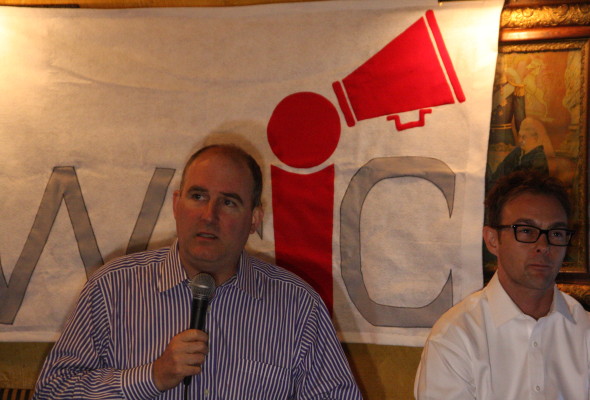Sustainability or going green is economically beneficial. It is not just about saving whales and polar bears. There exists huge business opportunities. Jim Harris, former leader of the federal Green party, thinks going green can be economically beneficial. For him it’s not just about saving the planet it can save businesses. Energy efficiency creates many times more jobs than the existing ways of doing business. Typically, those companies that realize and implement sustainability programs first are those that survive and thrive. When the price of oil rose to $147 per barrel in 2008, General Motors went bankrupt. GM’s hugely inefficient vehicles ensured its own demise. Conversely, Wal-Mart with its fleet of 7200 trucks realized that by installing skirts and metal cladding on their trucks they could reduce air churn. In 2009 Wal-Mart realized an overall fuel savings of about 6% or an equivalent of $200M annually.
Sustainability can also be the starting point for new revenue sources. GE started Ecomagination in 2005 and billed it as “GE’s commitment to imagine and build innovative solutions to today’s environmental challenges while driving economic growth.” Since then, Ecomagination have generated sales of about $25B a year by addressing the businesses of clean energy, high efficiency manufacturing. The idea that reducing environmental burdens translates to a reduction in economic output is already challenged by these two examples.
Risk mitigation is also a big component of the Green Economy. If economic Jeff Ruben is correct and oil reaches $225 a barrel in the near future, this will have a huge impact on industries like airlines. At that price it has been calculated that a 1% increase in efficiency in oil consumption will more than double the current profit.
Brett Wills from Partners in Project Green believes sustainability is all about profit. It is about the fiduciary responsibility of executives to create more profit by implementing the goal of sustainability. There are numerous practical ways that companies can move towards it.
Both people and industries are resistant to change, however, industry is the only institution powerful enough to make the change. However, change can happen quickly when there is consumer pressure involved. One of Brett’s clients landed a major contract in Europe. After several months of sales, they received a polite letter informing them that they had yet to receive their sustainability plan. Should they not receive one within 18 months, they would be forced to take their business elsewhere. It did not take long for his client to realize sustainability is good for the bottom line.
In the absence of political leadership, the business community can and should look for profitable ways to seek out sustainability practices.







